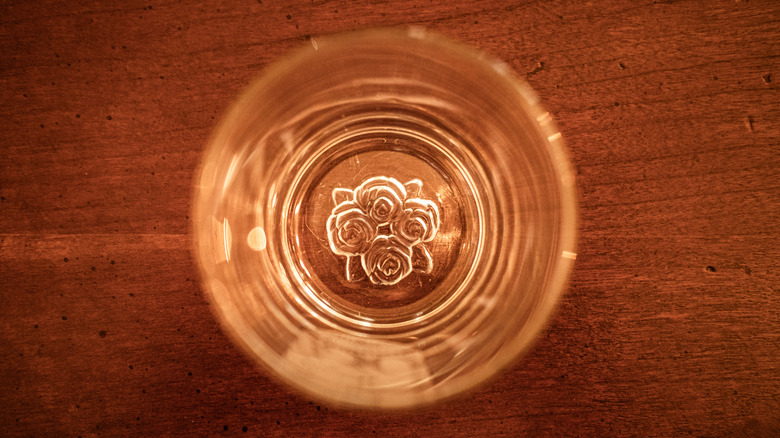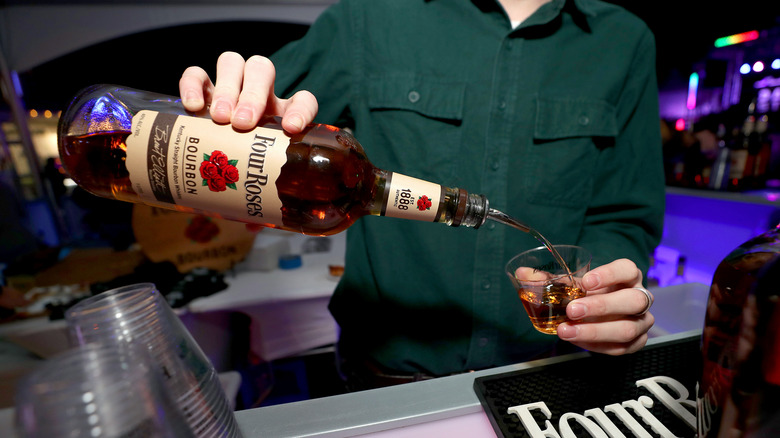The Important Storage Tip Four Roses Follows For Its Bourbon
The way in which bourbon barrels are stored can have a significant impact on a drink's flavor, and many brands go to great lengths to ensure each bottle results in a quality experience. As liquid matures in oak barrels, flavors deepen and different tasting notes develop. While some producers seek to protect bourbon barrels from temperature fluctuations, other distilleries try to create environments that can encourage variables that contribute to more nuanced drams. In the case of Four Roses Bourbon, makers intentionally try to control the temperatures at which the barrels are placed, and they have a specific warehouse layout designed in order to do so.
While many bourbon warehouses span several levels, with bourbon masters strategically placing barrels on different storeys, Four Roses keeps the maturation playing field even by placing barrels together on one level. For Four Roses, the goal is to reduce temperature differences, and the label has been successful, with only an 8-degree margin of change. In rickhouses with several levels, recorded temperatures can vary up to 35 degrees, so the environment at Four Roses' flat warehouses are fairly steady in comparison.
A standard environment for aging bourbon
It's clear Four Roses likes to make bourbon differently. The brand focuses on the taste of each barrel, instead of the amount of time the libation has been aged, and visitors are invited to tour the distillery to learn more about the label's unique approach to making spirits.
"We're the only distillery using single-story rack warehouses during the aging process to provide a gentle, undisturbed, and more consistent maturation process," Four Roses states. As told to Kentucky Bourbon Trail, the warehouses Four Roses uses to store and age whiskey are intentionally left without the ability to control temperature and influence climate. Temperature changes impact aging bourbon's contact with wooden casks and can result in more or less evaporated liquid (also known as angel's share). More importantly, however, is the way in which bourbon ages will result in distinct tasting notes that true connoisseurs can identify and appreciate.

